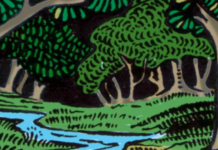 John Dee’s Occultism: Magical Exaltation Through Powerful Signs, by Gyorgy Szonyi
John Dee’s Occultism: Magical Exaltation Through Powerful Signs, by Gyorgy Szonyi
State University of New York Press (SUNY), 0791462234, 362 pp. (incl. notes, bibliographies and index), 2004
In John Dee’s Occultism Szyoni argues that, contrary to popular sentiment, Dee’s interest in occultism was not separate from his scientific investigations, but a logical extension of his philosophical studies.
The book is arranged in three parts, with the Part I provides an overview of Dee scholarship and perspectives on occultism in the Renaissance from Frances Yates to the modern era, contextualizing the various historical interpretations in their periods, concluding with the angle Szyoni is pursuing with the present text – a fascinating study in how the lens of history is focused at various points. Part II looks to Dee’s influences, relying heavily on catalogues of Dee’s vast library, and inferring other texts not mentioned, but with which he would have likely been familiar, from the Corpus Hermeticum to Paracelsus to various medieval texts. Part III examines Dee’s output, the books he wrote, diaries and letters, and the public opinion of the time.
Szyoni defines occult knowledge as “a synthetic amalgam of traditionally transmitted lore and its philosophically organized explanation”, recognizing that “only a smaller circle of the recipients of mystical experiences became conscious of occult wisdom, an even smaller circle among those would attempt to express active, magical will.”1
Addressing the issue of “black” versus “white” magick while acknowledging the awkwardness of his subject, Szonyi writes that he “can hardly believe early modern magicians who confidently asserted the possibility of separating white from black magic. It was only self-defense and propaganda in claiming that they were entirely free from all dark temptations.” Insightfully, he continues, inquiring “why should we want to expel the examination of those murky experiments from the study of our cultural heritage? Cultural history is not to be purged; rather it should be interpreted and comprehended.”2 Further, he notes that “actual proofs and documents of black magic are extremely scarce”, writing that “the philosophers interested in magic always emphasized their devout aspirations, which were primarily to praise the Creator by demonstrating a human dignity that would corroborate the notion of man having been created after the true image of God. The most eminent way to prove this was to accomplish exaltatio, the magus elevating himself into the divine spheres, to the side of the Supreme Being.”3
Attainment of exaltatio,4 Szyoni argues, was Dee’s aim. Initially pursued through mathematics and the physical sciences, Dee’s studies naturally lead him to more esoteric works, especially via the Corpus Hermeticum and the works of Paracelsus.
Dee believed that God had given humanity a sacred, angelic language “through which communication with the godhead as well as understanding of the work of creation was possible”.5
In attempting to unify nature and religion, and seeking to understand the larger workings of God’s mind, Dee sought to bring this knowledge to a wider public. Szyoni explains Dee’s (largely unsuccessful) canvassing of Europe for support and patronage as follows:
“those who strive for intimacy with the Other were not confining their activity to individual philosophical-theological-scientific speculations and experiments; on the contrary, they inevitably fell into the focus of public attention. Partly because they themselves had missionary messages that they wanted to share with their community and this public role became a corner stone of their self-fashioning strategy, and partly because they became increasingly alien and irritating to those who were less able to reach out for bridges between this and the transcendental world. Thus the seeker of the Other became the threatening Other for the community whose members and especially whose ideological leaders felt compelled to handle the problem by working out power technologies to contain the alien elements in their microcosms.”6
John Dee’s Occultism is an erudite study of John Dee’s place within Renaissance occultism and the larger culture, and further demonstrates why he remains an enduring figure in contemporary literature.








